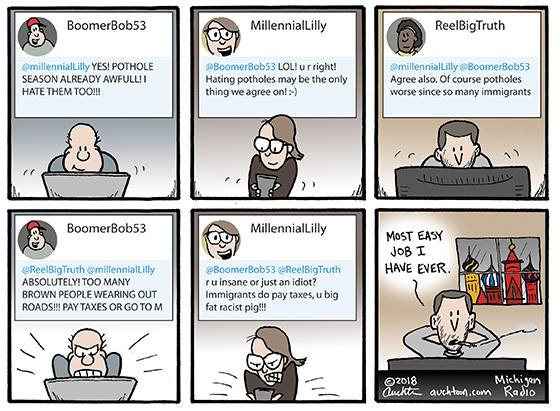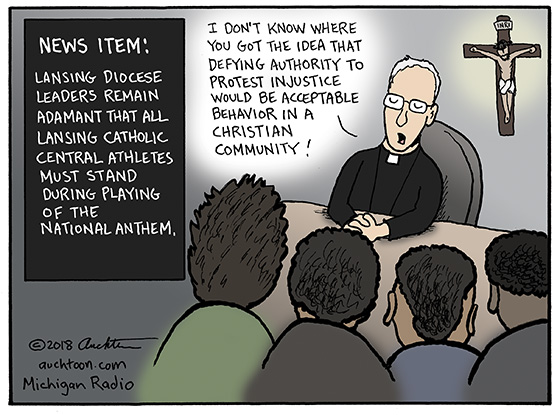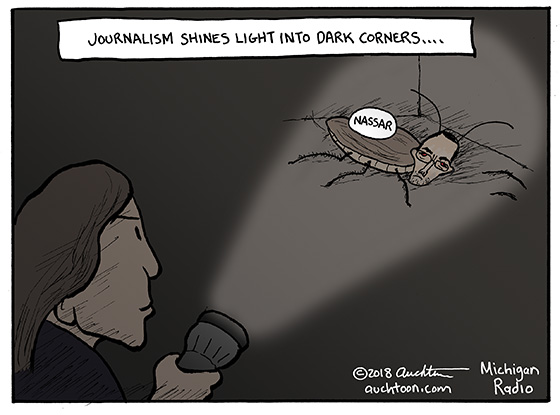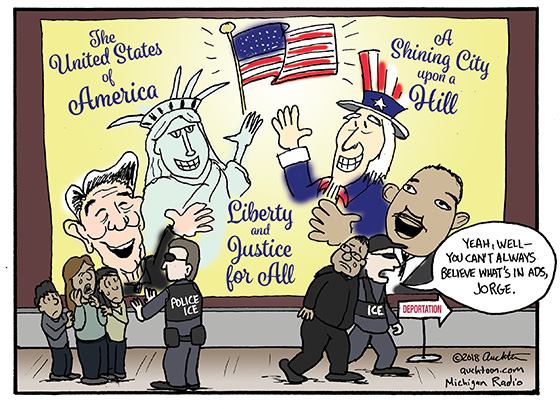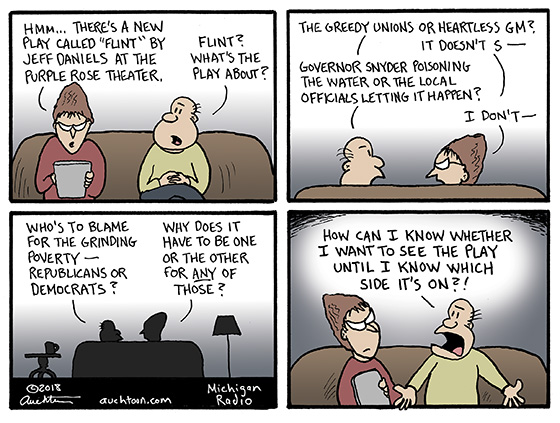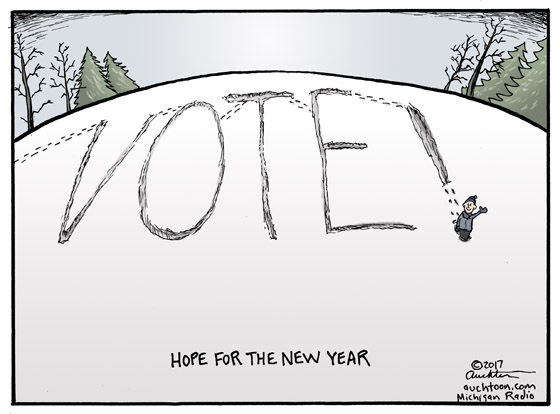Drinking Bleach
There was a punk rock band called “The Dead Milkmen” that had a fun little run of popularity in the late 1980s. They were goofy and sardonic and unapologetically without polish. One of their songs was called “Bleach Boys” in which the singer extols the supposed virtues of his buddies all drinking bleach (as apposed to indulging in alcohol or other drugs). It’s hilarious. A sample lyric:
Bleach keeps you young so I’ve been told
’cause no one who drinks it lives to be old
Ridiculous, right? But it reveals just how ridiculous it is to enthusiastically abuse anything. And how ridiculous it is to put a positive spin on something that is killing you.
So what’s the connection to the cartoon? Well, it’s that particular lyric that inspired me to think: The United States as a country continues to suffer death and injury at an unacceptable level from gun violence and opioid abuse. Why? Why if both are clearly killing people have we in the recent past allowed the doubling-down on their use?
It seems so obviously counterintuitive. Especially when other countries have found better methods. Yes, all countries are unique, but Canada is very, very similar to the United States. Why is their gun violence rate so much lower? Why is their level of opioid abuse (while still unhealthy) significantly less?
Until we get truly serious — which means sensible solutions to reduce availability and use — we’re kinda drinking bleach.


